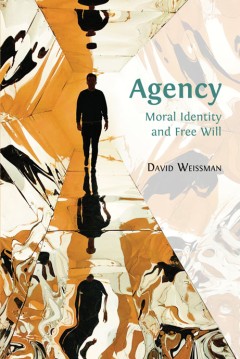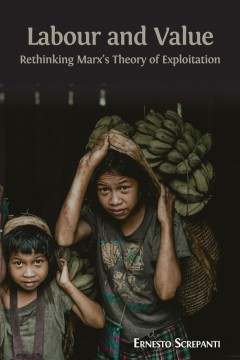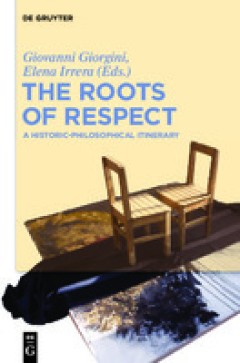Filter by
# Debug Box
/var/www/htdocs/pustaka-digital/lib/SearchEngine/SearchBiblioEngine.php:688 "Search Engine Debug 🔎 🪲"
Engine Type ⚙️: "SLiMS\SearchEngine\SearchBiblioEngine"
SQL ⚙️: array:2 [ "count" => "select count(sb.biblio_id) from search_biblio as sb where sb.opac_hide=0 and (sb.call_number LIKE :callnumber)" "query" => "select sb.biblio_id, sb.title, sb.author, sb.topic, sb.image, sb.isbn_issn, sb.publisher, sb.publish_place, sb.publish_year, sb.labels, sb.input_date, sb.edition, sb.collation, sb.series_title, sb.call_number from search_biblio as sb where sb.opac_hide=0 and (sb.call_number LIKE :callnumber) order by sb.last_update desc limit 10 offset 60" ]
Bind Value ⚒️: array:1 [ ":callnumber" => "1%" ]

Big and little histories : sizing up ethics in historiography
This book introduces students to ethics in historiography through an exploration of how historians in different times and places have explained how history ought to be written and how those views relate to different understandings of ethics. No two histories are the same. The book argues that this is a good thing because the differences between histories are largely a matter of ethics. Looking …
- Edition
- -
- ISBN/ISSN
- 9780429399992
- Collation
- XI, 209 p.
- Series Title
- -
- Call Number
- 174.99072 HUG b

Human cultures through the scientific lens : essays in evolutionary cognitive…
1. Anthropology, Useful and Scientific: An Introduction This presents, very briefly, the project of a cultural anthropology that is informed by evolutionary biology, psychology and economics. This "consilient” version of the social sciences, to adopt EO Wilson’s terminology, is based on the idea that we cannot understand human cultures in their diversity and commonalities, without this p…
- Edition
- -
- ISBN/ISSN
- 9781800642102
- Collation
- ill. 292 p.
- Series Title
- -
- Call Number
- 155.82 PAS h
AI art : machine visions and warped dreams
Can computers be creative? Is algorithmic art just a form of Candy Crush? Cutting through the smoke and mirrors surrounding computation, robotics and artificial intelligence, Joanna Zylinska argues that, to understand the promise of AI for the creative fields, we must not confine ourselves solely to the realm of aesthetics. Instead, we need to address the role and position of the human in the c…
- Edition
- -
- ISBN/ISSN
- 9781785420856
- Collation
- 181 p. : color, ill.
- Series Title
- -
- Call Number
- 111.85 ZYL a

Agency: Moral Identity and Free Will
There is agency in all we do: thinking, doing, or making. We invent a tune, play, or use it to celebrate an occasion. Or we make a conceptual leap and ask more abstract questions about the conditions for agency. They include autonomy and self-appraisal, each contested by arguments immersing us in circumstances we don’t control. But can it be true we that have no personal responsibility for …
- Edition
- -
- ISBN/ISSN
- 9781783748778
- Collation
- 210 p. : 2 B&W illustrations.
- Series Title
- -
- Call Number
- 123.5

Metaethics from a first person standpoint : an introduction to moral philosophy
Metaethics from a First Person Standpoint addresses in a novel format the major topics and themes of contemporary metaethics, the study of the analysis of moral thought and judgement. Metathetics is less concerned with what practices are right or wrong than with what we mean by ‘right’ and ‘wrong.’ Looking at a wide spectrum of topics including moral language, realism and anti-realis…
- Edition
- -
- ISBN/ISSN
- 9781783742004
- Collation
- viiii, 124 p.
- Series Title
- -
- Call Number
- 170.42 WIL m

Labour and value : rethinking Marx's theory of exploitation
In this book Ernesto Screpanti provides a rigorous examination of Marx’s theory of exploitation, one of the cornerstones of Marxist thought. With precision and clarity, he identifies the holes in traditional readings of Marx’s theory before advancing his own original interpretation, drawing on contemporary philosophy and economic theory to provide a refreshingly interdisciplinary exegesis. …
- Edition
- -
- ISBN/ISSN
- 9781783747818
- Collation
- 144 p. : ill.
- Series Title
- -
- Call Number
- 179.8 SCR l

The Roots of respect: a historic-philosophical itinerary
Despite the increasing concern for the issue of respect for persons displayed over the last decades by political philosophers, human-right thinkers, social and ethical theorists, a comprehensive treatment of the problem from a historical-philosophical perspective is conspicuously absent. The present collection of essays aims to contribute to the fulfillment of this gap by offering a reconstruct…
- Edition
- -
- ISBN/ISSN
- 9783110526288
- Collation
- xi, 232p.
- Series Title
- -
- Call Number
- 100 ROO r

Eyeblink conditioning in psychiatric conditions: state of the field and futur…
Eyeblink classical conditioning (EBC) is a model paradigm for associative (also termed Pavlovian) learning, one of the simplest and best understood forms of learning and memory. Because EBC paradigms are readily adapted across species, the neural substrates of EBC have been well characterized, and include but are not limited to the cerebellum and anterior interpositus nucleus, the hippocampus, …
- Edition
- -
- ISBN/ISSN
- 9782889452750
- Collation
- 98p.: ill.
- Series Title
- Frontiers Research Topics
- Call Number
- 153.1526 EYE e

The psychodynamics of enlightened leadership : coping with chaos
This open access book provides a comprehensive look at the pluses and minuses of leadership in times of an unparalleled crisis, such as the COVID-19 global pandemic. It examines the COVID-19 crisis in terms of psychodynamics, crisis management, and especially from the standpoint of complex, messy systems. It analyses how leaders need to think and act differently to cope better with—unfortunat…
- Edition
- -
- ISBN/ISSN
- 9783030717643
- Collation
- xiii, 86p. : ill.
- Series Title
- -
- Call Number
- 158.4 MIT p

The palgrave handbook of positive education
This open access handbook provides a comprehensive overview of the growing field of positive education, featuring a broad range of theoretical, applied, and practice-focused chapters from leading international experts. It demonstrates how positive education offers an approach to understanding learning that blends academic study with life skills such as self-awareness, emotion regulation, health…
- Edition
- -
- ISBN/ISSN
- 9783030645373
- Collation
- xxviii, 777 p.; ill
- Series Title
- -
- Call Number
- 150.1988 THE t
 Computer Science, Information & General Works
Computer Science, Information & General Works  Philosophy & Psychology
Philosophy & Psychology  Religion
Religion  Social Sciences
Social Sciences  Language
Language  Pure Science
Pure Science  Applied Sciences
Applied Sciences  Art & Recreation
Art & Recreation  Literature
Literature  History & Geography
History & Geography